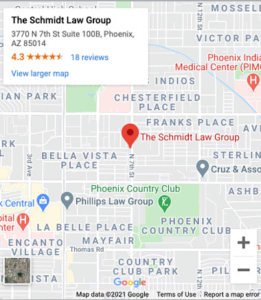If someone asked you to brainstorm things that judges and juries do, you might imagine the jury debating about whether the defendant is innocent or guilty and then presenting their verdict to the judge. Perhaps the jury’s discussion sounds like what you remember from the movie Twelve Angry Men. You might imagine the judge sentencing the defendant to prison or probation. Unless you have worked in the legal profession or been a party in a personal injury lawsuit that went to trial, your ideas about what juries do probably come from media representations of criminal trials. Some civil cases have juries, too, and while the basic process of jury trials in civil cases is the same, there are a few important differences.

The Role of the Jury in a Civil Trial
As in criminal trials, the jury in a civil trial is present in the courtroom while the attorneys for the plaintiff and the defendant present their arguments and evidence and summon and cross-examine witnesses. After the attorneys for the plaintiff and the defendant present their closing arguments, the judge gives the jury instructions that they must follow during their deliberations (discussion held without the presence of the judge) to reach the verdict (decision). The judge provides the jury with information about the laws relevant to the decision the jury must make; he or she does not assume that the jurors have any background knowledge about the law or that they can infer everything they need to know about the law just based on hearing the attorneys present their cases. The bailiff escorts the jury out of the courtroom and into another room where they will deliberate. The jurors choose one member of the jury to be the foreperson, who will eventually inform the judge of the jury’s verdict.
How a Jury in a Civil Trial Reaches a Verdict
Criminal trials require a unanimous decision to secure a verdict, but civil trials do not. This makes sense, considering that the standard of proof also is higher in criminal trials (beyond a reasonable doubt) than it is in civil trials (preponderance of the evidence, which just means more likely than not), and in criminal cases, a defendant can lose his or her freedom if the court rules it so, whereas in a civil case, he or she can only be required to pay money or surrender property. A majority of the jurors must agree on the verdict for civil cases. In a civil trial, if the jury reaches a unanimous verdict, only the foreperson must sign it. If some jurors do not agree with the verdict, the ones who agree sign the verdict, and the ones who do not agree do not sign.
Contact Eric Schmidt About Personal Injury Cases
Most personal injury cases do not go to trial, but with or without a jury, a skilled personal injury attorney makes all the difference for the outcome of your case. Contact Eric Schmidt in Phoenix, Arizona, to discuss your case if you think you have grounds for a personal injury lawsuit.
















